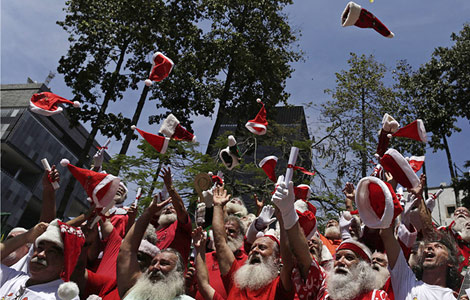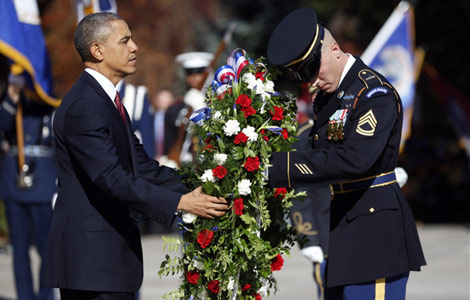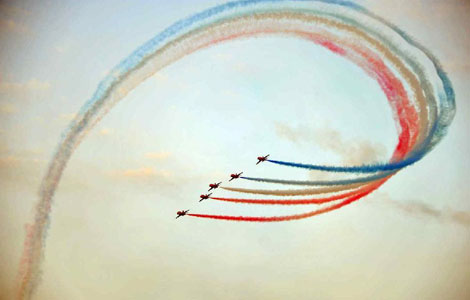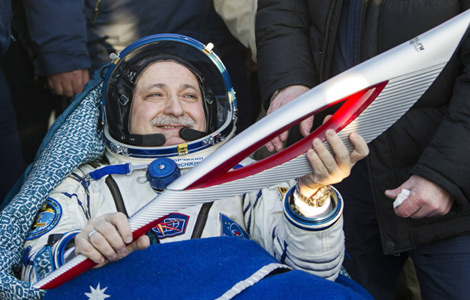

MOSCOW - The China-Russia strategic partnership has advanced recently and should reach new heights in the future, Russian experts say.
This year, Russia and China witnessed intensive bilateral political communication and multi-layer cooperation, said Sergei Sanakoyev, head of the Russia-China Center for Trade and Economic Cooperation.
Russian President Vladimir Putin visited China in June, during which leaders of the two countries laid out the blueprint for bilateral relations for the next decade.
Chinese Vice-Premier Li Keqiang's visit to Russia in spring elevated bilateral cooperation to a higher level.
In September, Chinese President Hu Jintao participated in the Asia-Pacific Economic Cooperation (APEC) summit in Russia's Far Eastern city of Vladivostok, during which leaders from the two sides vowed to deepen their strategic cooperation.
This week, Chinese Premier Wen Jiabao visits Russia and attends the 17th regular meeting between the Chinese and Russian heads of government in Moscow.
The visit is expected to enhance bilateral relations and facilitate cooperation, experts say.
An efficient mechanism of high level political contacts also facilitated pragmatic economic and trade cooperation between the two countries, experts said, adding bilateral trade had grown remarkably this year.
Russia and China need to increase the share of machinery, high-technology, and innovative production with high added value in their future economic cooperation, according to local experts.
"On one hand, the upstream dynamic is visible, which is a positive sign. On the other hand, the share of the production with high added value remains very little, which we have to work on," Sanakoyev said.
Besides working closely on bilateral ties, the two countries also jointly addressed major international issues. Alexei Maslov, a scholar at Russian Peoples' Friendship University, highly praised the coordination between the two partners in the UN Security Council.
Meanwhile, China and Russia started to look for new forms of cooperation within the framework of the Shanghai Cooperation Organization (SCO), Maslov said.
Carrying out productive economic and security cooperation, the group has grown into a constructive force and played a major role in geopolitics in the Eurasian region.
"Initially, SCO was rather a loose structure, but now Russia and China have jointly pushed for economic cooperation and rendered the organization a large economic structure," Maslov said.
Experts also hailed the high level of people-to-people exchanges between the two countries. With the successful Tourism Year of Russia in China this year and Tourism Year of China in Russia to be held in 2013 in Russia, Sanakoyev expected a tourism boom for both sides.
Educational exchanges and scientific research cooperation are also on the rise. "Major success has been achieved in education, where the direct university exchanges have started," Maslov said, listing joint educational programs in environment science, energy, and IT among others.
To promote mutual understanding of the two peoples, the two governments should strengthen Russian studies in China and Chinese studies in Russia, experts suggest.
According to Fedor Lukyanov, editor in chief of the journal Russia in Global Affairs, the current level of China-Russia relations is "close to optimal."
With enriched and fruitful cooperation in various fields, there is wide space and huge potential for the China-Russia strategic partnership of coordination, experts say.







